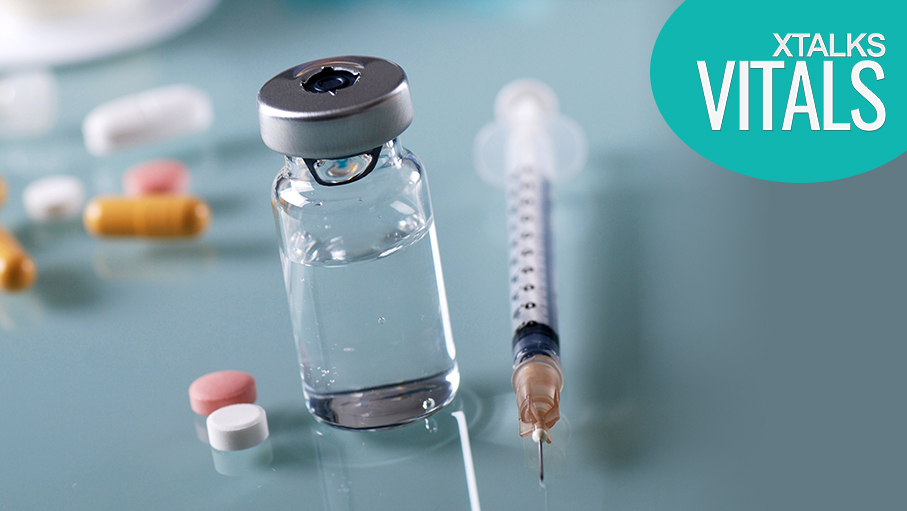Although approximately 73.5 million adults in the US have high levels of low-density lipoprotein – so-called ‘bad’ cholesterol – only one in three of those affected, have their cholesterol under control. A new study conducted by Dr. Bryce Chackerian and his colleagues from the Department of Molecular Genetics and Microbiology at the University of New Mexico, have developed a vaccine which could rival current cholesterol drugs in terms of cost and effectiveness.
The results of the study – which were published in the journal, Vaccine – provided evidence that the vaccine was able to significantly reduce LDL levels in both mice and rhesus macaque monkeys. High levels of LDL cholesterol puts a person at an increased risk of plaque build-up in the arteries, which could lead to heart attack, stroke and heart disease.
Heart disease is the number one cause of death in the US, and those with high levels of LDL cholesterol are two times as likely to develop heart disease, compared to those with healthy levels of the lipid. While changes to diet and exercise can help maintain healthy levels of cholesterol, those with high LDL often take statins – a class of drugs which inhibit the liver enzyme necessary for the production of cholesterol – in order to get their LDL levels under control.
According to Chackerian, statins are not effective in every patient and they can carry the risk of severe side effects, including digestive problems, liver damage, muscle pain, and an increased risk of developing diabetes. The newly-developed vaccine may be more effective than statins because it inhibits a cholesterol-regulating protein – proprotein convertase subtilisin/kexin type 9 (PCSK9) – found in the blood.
In developing the vaccine, the researchers created a bacteriophage virus-like particle (VLP) that elicits a strong immune response against PCSK9. The PCSK9 protein functions by binding the LDL cholesterol receptor in the blood. In the liver, the LDL receptor is capable of removing LDL cholesterol from the blood, but with PCSK9 blocking the receptor site, it’s unable to perform this function.
The vaccine created by Chackerian and his team blocks PCSK9, leaving the LDL receptor open and able to remove excess LDL cholesterol from the blood. The researchers tested a single dose of the vaccine in mice who were 4-6 weeks old, and found it was successful in dramatically reducing LDL levels in the blood.
The vaccine was combined with traditional statin treatment in 9-17 year old rhesus macaques, and found an enhanced LDL-lowering effect. The data suggests that the vaccine may also be effective in humans with high LDL cholesterol.
“One of the most exciting things about this new vaccine is it seems to be much more effective than statins alone,” said Chackerian. “While the developed world may be able to sustain these costs, expense is likely to be a major impediment to the use of such drugs in the developing world. In contrast, vaccination for a wide variety of mostly infectious communicable diseases has been proven to be compatible with the health care infrastructure in the developed and developing world.”
The vaccine developed by Chackerian and his colleagues is not the first LDL-lowering therapy developed to block PCSK9; earlier this year, the US Food and Drug Administration (FDA) approved a drug – Repatha (evolocumab) – uses monoclonal antibodies to target PCSK9 and lower LDL.
According to Chackerian, his vaccine not only has the potential to be more effective than antibody treatment, but will certainly be much less expensive. Antibody-based therapies can cost more than $10,000 per year, for a single patient.
“The data reported here, in both mice and macaques, provides proof-of-principle evidence that a vaccine targeting PCSK9 can effectively lower lipid levels and work synergistically with statins,” said the researchers. “Thus, the use of VLP-based vaccines targeting PCSK9 peptide could serve as a cost-effective alternative to other therapies and could lead to a widely applicable vaccine-based approach for controlling hypercholesteremia [high cholesterol] and cardiovascular disease.
“If successful, this approach could obviously have a major impact on human health worldwide.” Chackerian and his team have plans to continue to test the vaccine in rhesus macaques, eventually moving towards collaboration with a commercial partner to test the vaccine in humans.
Sources:
- New vaccine could offer ‘cheaper, more effective’ treatment for high cholesterol – http://www.medicalnewstoday.com/articles/302458.php
- Crossey, E., Amar, M., Sampson, M., Peabody, J., Schiller, J., Chackerian, B., and Remaley, A. (2015). A cholesterol-lowering VLP vaccine that targets PCSK9. Vaccine.












Join or login to leave a comment
JOIN LOGIN